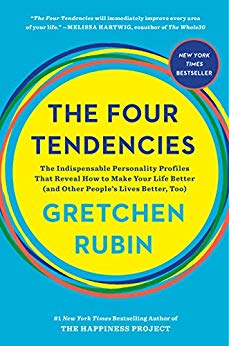

This article is an excerpt from the Shortform summary of "The Four Tendencies" by Gretchen Rubin. Shortform has the world's best summaries of books you should be reading.
Like this article? Sign up for a free trial here .
What is the Obliger tendency from Gretchen Rubin’s The Four Tendencies like? How do they behave, and what’s the Obliger Personality?
Out of Gretchen Rubin’s four tendencies, the obliger tendency makes up the majority of people. Their flaw is that they are more focused on living up to the expectations of others, but don’t focus on their own goals. Their biggest strength is that others know they can rely on them, so they make great leaders and team members.
Keep reading to learn more about the obliger tendency from The Four Tendencies.
Overview of the Obliger Tendency
Obligers readily respond to external expectations, but not internal expectations. They meet deadlines and follow through for bosses, colleagues, spouses, and so on—but don’t follow through on things they want to do for themselves. If there are no external expectations, Obligers almost always fail to complete the task, no matter how important it is to them. Obligers have to learn how to create outside accountability that works for them.
People with the Obliger Tendency make up the largest tendency, for both men and women. Furthermore, Obligers are most likely to wish they were a different tendency. Rubin suggests this might be because the other tendencies cause others frustration but are generally satisfied with themselves, whereas Obligers cause themselves frustration: they beat themselves up about meeting others’ expectations but not their own.
According to Gretchen Rubin, Obligers often frequently misdiagnose their issues, as well: because they can meet external expectations easily, they assume that laziness or self-sacrifice causes them not to meet their own internal expectations. And it doesn’t help that other tendencies, who have an easier time doing what they want to do and resisting the expectations of others, tend to judge Obligers for their incapability to meet internal expectations.
People with the Obliger Tendency have the most to gain from learning about their tendency and using it to their advantage. Once they can figure out how to create external accountability that works for them, they will find it much easier to start to do things for themselves and build a happier life.
Strengths of Obligers
Obligers are the “rock of the world” —everyone can depend on them. They’re most likely to contribute to home and work, aiming to keep their spouses, children, colleagues, and bosses happy and fulfilled. They make great leaders, team members, family, and friends because of their reliability and dedication to others. Out of all the tendencies, they usually get along with other tendencies the best.
When external expectations align with their internal expectations, they get to live their best lives.
They do well in almost any career, as long as it has external expectations, and do particularly well in some careers that require employees to continually go above and beyond, such as corporate law, social work, medicine, tech startups, and wealth management.
Some other positive ways to describe Obligers:
- Good bosses and leaders
- Responsible
- Meet others’ expectations
- Go the extra mile
- Do well with external accountability
Weaknesses of Obligers
People with the Obliger Tendency simply cannot meet internal expectations, for the most part. They need external accountability to get anything done, and if they don’t have any, they have to organize it for themselves. Similarly, Obligers have a hard time self-motivating, and often need coaches or groups to help them accomplish things for themselves.
- (Shortform example: An Obliger makes a great employee because when a boss asks them to do something, they have no problem doing it on time and to the best of their standards. But if that same Obliger has an internal expectation to get in shape, they’ll never make it to the gym without someone or something else they’re beholden to. In fact, this Obliger might never make it to the gym precisely because they do everything their boss asks right away: “I can disappoint myself by not going to the gym, fine—but I can’t disappoint my boss!”)
Because Obligers consistently do what others ask of them, others often take advantage of this and ask more from Obligers than other people—which can create resentment in Obligers while they still attempt to fulfill the expectations.
This is the difference between Upholders and Obligers: Upholders strike a balance between meeting their own internal expectations and meeting others’ external expectations. Upholders do a better job of taking care of themselves, and doing things they want to do, whereas Obligers can start to feel like the only people they’re taking care of are other people.
Sometimes people with the Obliger Tendency view their close friends and family members as extensions of themselves, and this can get them in trouble in terms of internal and external expectations. If a husband views his wife as part of his inner self, she won’t be able to ask him to do anything as an external source with expectations. And context can change this, too: a mother puts her kids before herself as external sources, but puts work before her kids if push comes to shove.
- This can cause particular difficulty in marriage, when one spouse’s external expectations get turned into internal expectations for their Obliger spouse, and thus get neglected.
Because Obligers expend so much energy fulfilling others’ expectations, they get easily burnt out. If they get too burnt out or the expectations are too high, Obligers can go into Obliger-Rebellion mode, where they suddenly, without warning, refuse to meet any expectations: everything’s fine until it absolutely isn’t.
- This can happen in any realm, work, friendship, even marriage. Rubin offers an example of a person who woke up one morning and knew she couldn’t continue to hold up her marriage of 18 years, and announced, without warning, that she wanted a divorce. She said there was “no way back” after deciding.
- We’ll talk about how to protect against Obliger-Rebellion in The Obliger’s Challenge.
People with the Obliger Tendency who start their own business will do well with tasks like meeting deadlines and getting work done for clients, but they’ll have trouble networking or building their business, and can waste time on overly demanding clients.
Other negative ways to describe Obligers:
- Bad at imposing limits or saying no
- Exploitable
- Resentful
- Overworked and burnt out
- Can fall into Obliger-Rebellion
Variations on the Obliger
According to Gretchen Rubin, Obligers vary tremendously in how they respond to external expectations. For example, high-energy Obligers meet more expectations than low-energy Obligers. According to Rubin’s diagram, the Obliger can tip Upholder or Rebel.
Some obligers attach so easily to external expectations that they ultimately project expectations coming from other people and meet those. (These Obligers most likely tip Upholder.)
- For example, an Obliger might assume that their partner expects them to wash the dishes, even if the partner has never said or suggested anything of the kind. Because the Obliger assumes this, they always wash the dishes and feel pressure to do so, even if no one has concretely set that expectation for them.
Other Obligers don’t worry about external expectations unless there are consequences or penalties attached—they’ll do something more to avoid punishment than to fulfill expectations. (These Obligers most likely tip Rebel.)
Upholder Tip
People with the Obliger Tendency who tip Upholder have a clearer sense of their own desires and more ability to say no to things they don’t want to do. Though they still have difficulty meeting their own internal expectations, they meet them more often and with less difficulty.
Rebel Tip
According to Gretchen Rubin, Obligers who tip Rebel dislike external expectations but still meet them, and get resentful about others having expectations for them. They often feel pushed around and respond negatively to anything that feels like coercion. They don’t like routines, schedules, or structure, and they’re more quick to experience burnout and Obliger-Rebellion.
Creating External Expectations and Avoiding Obliger-Rebellion
Obligers can fulfill external expectations, but fail to fulfill their own internal expectations, and this imbalance causes resentment. However, Obligers can use their dependence on external expectations to motivate them to fulfill their internal expectations.
Some people with the Obliger Tendency respond well to light accountability: automated email reminders, highlighted unfinished to-dos, or technology like FitBits might be enough for them.
Other Obligers need other people to feel accountable to, and it can’t feel like the other people are doing a favor for the Obligers—it has to really feel like someone expects them to do something. They can try a few different things:
- Have someone set up supervision, fees, deadlines, or consequences.
- Find accountability partners in the form of classmates, coaches, or trainers.
- Go to accountability groups such as Weight Watchers or Alcoholics Anonymous, or digital groups.
- Pair internal expectations with benefits to other people.
- For example, one husband and wife team decided that the wife could only exercise after her Obliger husband did—this gave the husband an external reason to exercise.
- Obliger parents can also use the desire to be good role models for their children to serve as external expectations.
- Use other external expectations to push you say no to certain things: saying no to this thing allows you to say yes to another thing, or saying no to this allows someone else the opportunity to do it.
Understanding and Protecting Against Obliger-Rebellion
As we said, Obligers sometimes feel exploited—but that’s because they are. Think about it: if you know you needed something done, who would you ask—the person who routinely says no, or the person who always agrees to do something?
According to Gretchen Rubin, Obligers can feel resentful because of the amount of expectations people put on them, and underappreciated because it seems like people just expect them to do what they ask. Then, because Obligers have difficulty delegating or saying no, they get burnt out. They don’t have self-protection systems: Obligers don’t protest against expectations they know are unfair until Obliger-Rebellion hits them, and that’s when they’ll suddenly quit without warning…
———End of Preview———

Like what you just read? Read the rest of the world's best summary of Gretchen Rubin's "The Four Tendencies" at Shortform . Learn the book's critical concepts in 20 minutes or less .
Here's what you'll find in our full Four Tendencies summary :
- What the Four Tendencies are, in complete detail
- How to compensate for your tendency's weakness
- Which tendency you pair best with romantically
- How to deal with other people's tendencies






